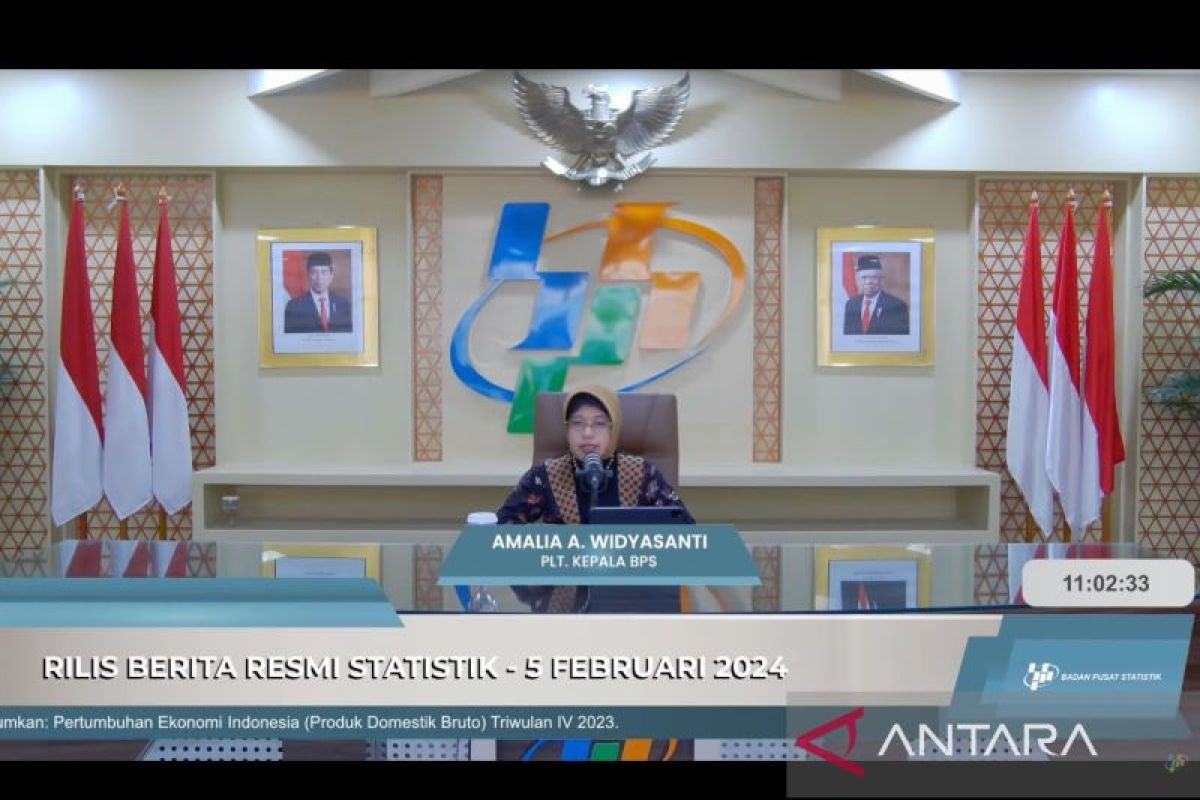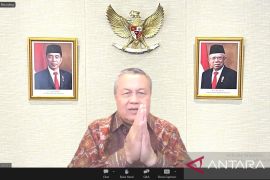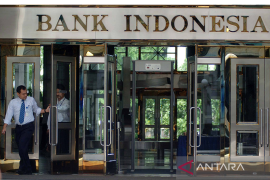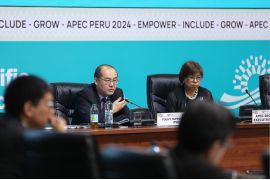The growth of those business sectors had been supported by an increase in the people’s mobility; international-level events, such as U-18 World Cup and ASEAN Summit, and Mandalika MotoGP; and preparations for the 2024 General Elections.Jakarta (ANTARA) - Acting Head of Statistics Indonesia (BPS) Amalia Adininggar Widyasanti announced on Monday that Indonesia’s economy had grown by 5.05 percent in 2023.
At a press conference held in Jakarta, she explained that all business sectors experienced positive growth in 2023.
Business sectors, with the biggest contribution to economic growth, are the processing industry, trade, agriculture, mining, and construction.
Meanwhile, business sectors, with the highest cumulative growth, are transportation and warehousing, with a growth of 13.96 percent, followed by other services, with a growth of 10.52 percent, and accommodation and food and beverage, with 10.01-percent growth.
According to the BPS records, the growth of those business sectors had been supported by an increase in the people’s mobility; international-level events, such as U-18 World Cup and ASEAN Summit, and Mandalika MotoGP; and preparations for the 2024 General Elections.
Based on the sources of economic growth in 2023, the processing industry is the biggest source of economic growth, contributing 0.95 percentage points to the economic growth. The growth in the processing industry has been supported by strong domestic and global demand.
“Even though the figure is relatively lower than 2022 (1.01 percentage points), but it is bigger than 2021 (0.70 percentage points),” she remarked.
The other second-biggest source of economic growth is the trade sector, with a contribution of 0.63 percentage points, in line with the increase in the supply of domestic goods.
The trade of cars, motorcycles, and repairs grew 4.5 percent. Meanwhile, wholesale and retail trade, excluding cars and motorcycles, grew 4.92 percent.
Furthermore, the transportation and warehousing sector contributed 0.58 percentage points in line with the increase in people’s mobility.
Air transportation grew 28.96 percent, marked by an increase in passengers for both domestic and international routes. Meanwhile, rail transport grew by 23.74 percent, supported by long-distance train trips, the Greater Jakarta LRT, and Jakarta-Bandung High Speed Rail.
The information and communication sector contributed 0.49 percentage points out of the 5.05-percent economic growth, supported by an increase in internet penetration in Indonesia.
Related news: Domestic tourist trips in 2023 higher than in 2019--2022: BPS
Related news: Indonesia records trade surpluses for 44 successive months: BPS
Translator: Imamatul Silfia, Raka Adji
Editor: Arie Novarina
Copyright © ANTARA 2024












